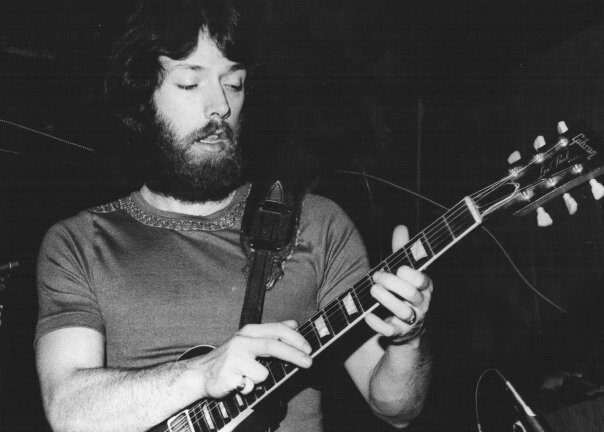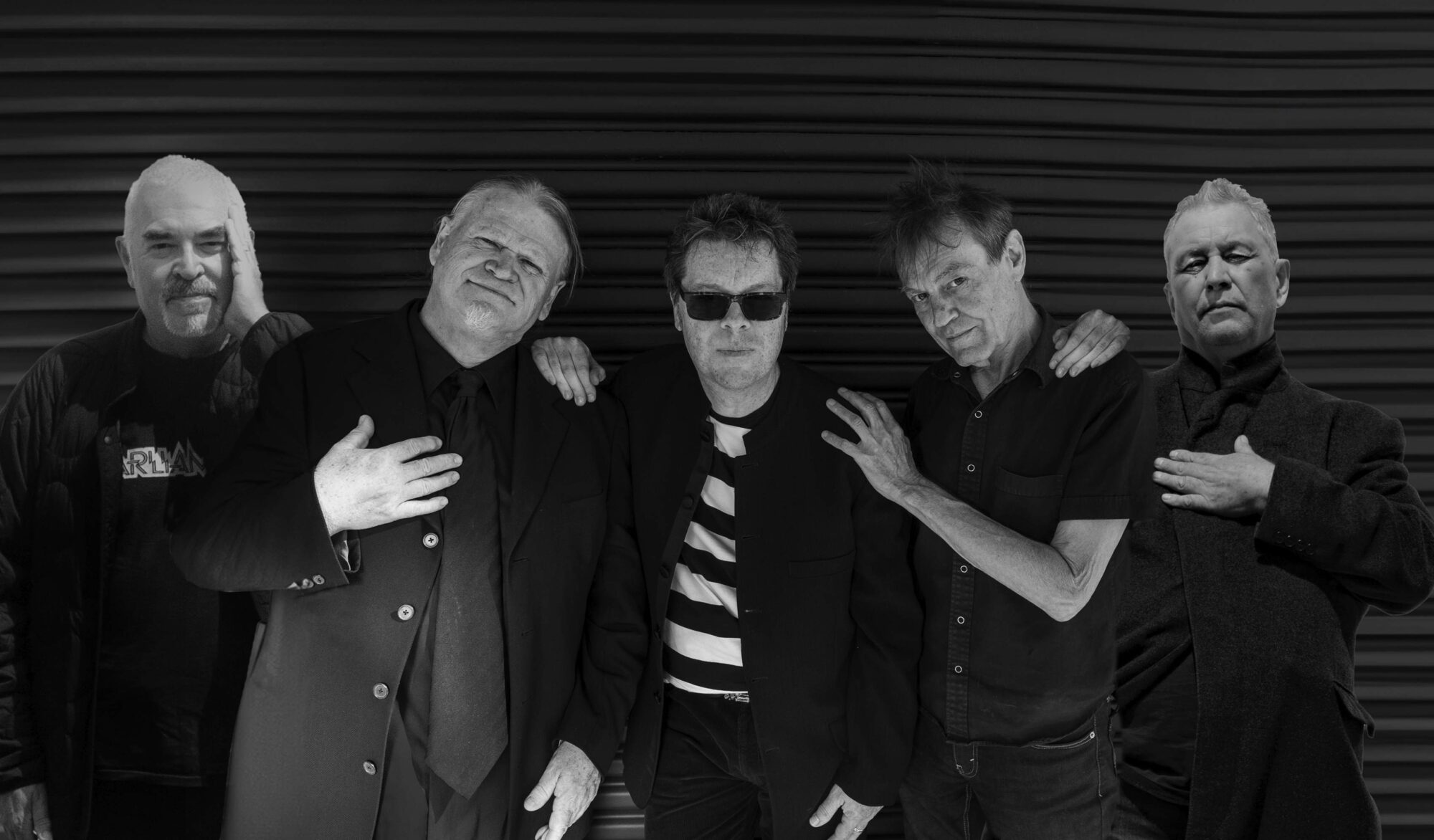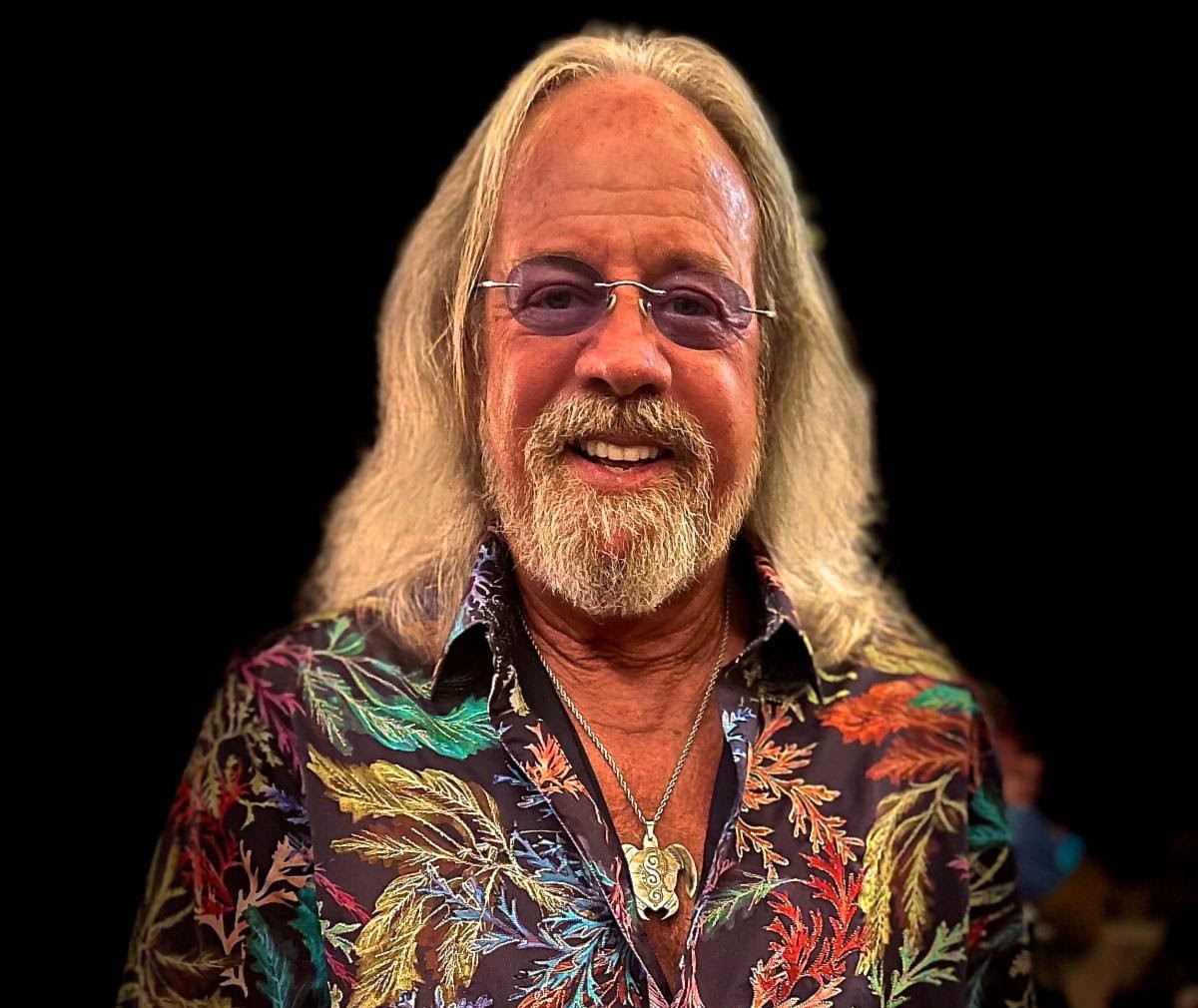Snake Walk with Harvey Mandel
Some musicians are slippery. You think you’ve got them pegged, then they turn a corner and you’re lost again. They play with the greats but they’re not just another sideman in the background. They’ve got their own thing going, a sound you can’t fake. Harvey Mandel is one of those.
He’s a legend in his own right, a guitarist who never once took the straight road if there was a crooked one that felt better.
This interview goes straight into the wiring of his brain. It’s a long, close look at a half-century of doing the work, chasing the muse, and never settling for the easy answer. Mandel talks like someone who’s been listening hard his whole life, to music and to everything else. He’s got thoughts on the creative process, the old Chicago blues scene, and the kind of lessons you don’t learn in any classroom.
You’ll hear about the time he was with Canned Heat and John Mayall, and how he’s always tuned in to the “vibe” of a band like it’s a living thing. You’ll get the story of his constant tinkering, always looking for the perfect tone, from oddball gear to just tossing the pick and letting his fingers do the talking. And you’ll hear about the new record, ‘Snake Walk.’
Harvey Mandel comes from a generation of players who knew the whole point. He was there with people who built their tone from the ground up, out of something pure and unrepeatable, a sound that talks to you in a way words never could.
The interview was conducted by Michael Frank, who founded Earwig Music in 1978 as a label and management company out of his love for the blues and his drive to help the musicians who play it.
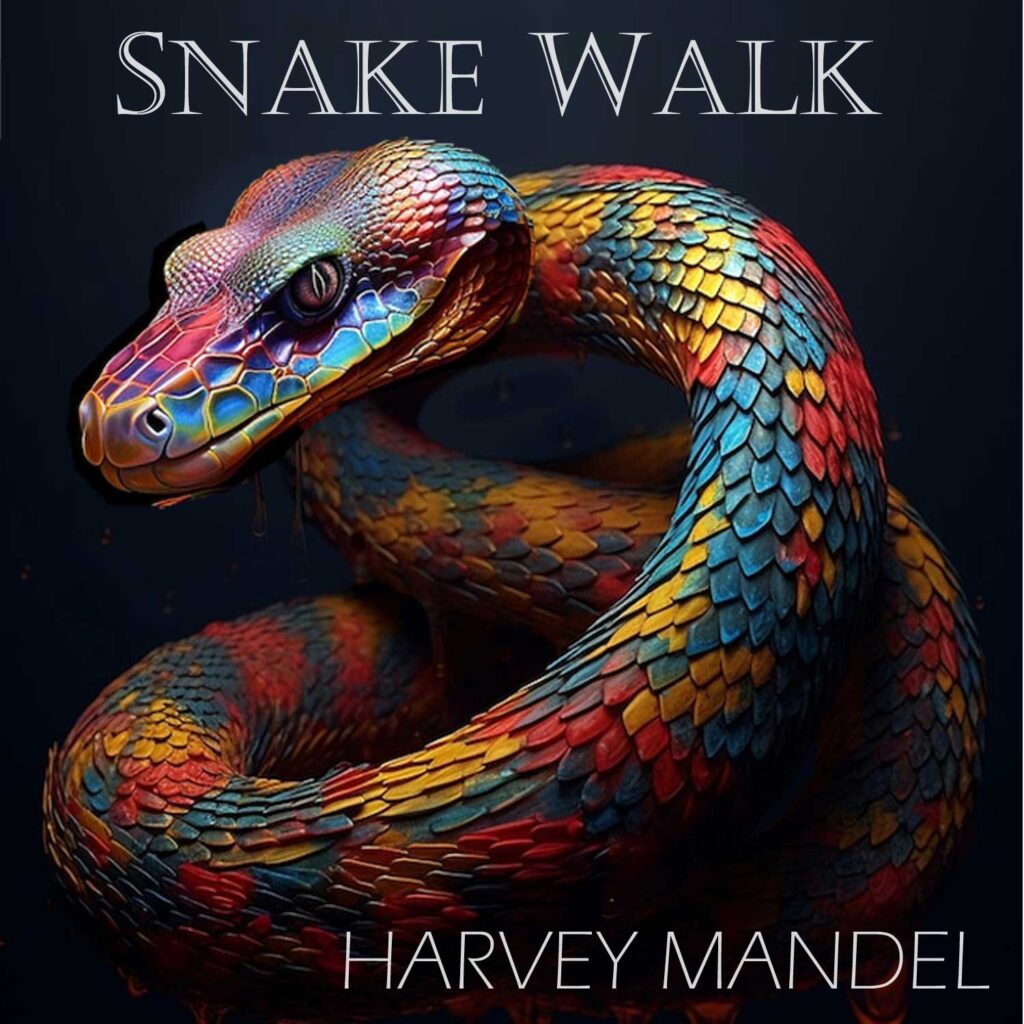
“If you want to get known or be appreciated, you gotta come up with your own style.”
Michael Frank: Harvey, it’s quite amazing to see you back with ‘Snake Walk’ after all you’ve been through in the last few years. How does it feel to finally be getting this record out?
Harvey Mandel: It feels good because the main thing I like about my music is getting to record, either playing live or doing a studio recording. So it was good to do.
Michael Frank: Does it feel different from some of your previous albums?
Harvey Mandel: All the albums I’ve done, I feel the same way about them. I always get excited when I’m recording a new project. My whole energy and all my focus go into that particular recording. Anything I’ve done, I always put my full energy into it, and it always works.
Michael Frank: And how many records do you have now? I had a hard time figuring it out.
Harvey Mandel: At least 20 different albums over the last 40 or 50 years.
Michael Frank: That’s quite a lot of records. Your music has been a blend of blues, jazz, and rock. How would you describe your music to someone who has never heard it?
Harvey Mandel: It’s mostly blues and rock, like you said, with a little bit of jazz and on occasion, a drop of country.
Michael Frank: Do you think your playing has changed over the last couple of albums?
Harvey Mandel: Every record I’ve done sounds a little different if you listen to every Harvey Mandel record from the beginning to right now. There are no two exactly alike. They always sound different. I’m always changing my style, and I play according to how I feel depending on the type of songs or what I’m working on.
Michael Frank: What parts of this new album stand out to you the most in terms of your experience making them?
Harvey Mandel: There’s no one particular thing. The album, in general, is very good. It’s a good combination of songs that were written for me and songs that I wrote myself, and they’re all top-notch, so I’m happy with the material on this record. It sounds very good.
Michael Frank: Is there anything else you could tell the readers about your experience recording this and maybe writing the songs?
Harvey Mandel: Nothing specific that I can say, other than I did all this stuff in my own home studio with Pro Tools, which for me is a very comfortable way of recording. I don’t have the pressure of going into a regular commercial studio where you have a time limit and other stuff. Here, I can take my time and do whatever it takes for me to be satisfied. So it’s much easier and more conducive to doing a good job when I’m doing it here at my own home studio.
Michael Frank: How do you know when a track is finished and you’re satisfied with it?
Harvey Mandel: I have a great musical ear. I know when I do something if it’s correct, if it sounds good. I know if I need to do it again. There are no ifs, ands, or buts about it. I’m an expert on my own playing, so I know when I’ve done a satisfactory job and it’s okay.
Michael Frank: Have there been moments when you just thought, “Wow, this is really super special”?
Harvey Mandel: Many times.
Michael Frank: When you play music live, do you have any experiences with colors or textures, like some musicians do?
Harvey Mandel: No, except maybe 40 years ago when I took the acid that Charlie Musselwhite must have wanted at a gig.
Michael Frank: That’s funny. I remember those sensations too. You’re still friends with Charlie. When you were working with other groups like John Mayall and other bands, did you have a particular approach? Did you adjust the way you played?
Harvey Mandel: I had to adjust my playing to every group because they were different. With Canned Heat, it was strictly Canned Heat, and I had to play well and work with that band. When I played with John Mayall, I had to play to satisfy him. We were still doing blues, but my playing was adjusted to make him happy, and if he was happy, then I was happy. How I approached any group or anything I’ve ever played with is that I always tried to match the vibe of what’s happening and go along with that.
Michael Frank: That’s quite a gift. You can just feel the right groove and know how to pick up on that spirit.
Harvey Mandel: That’s part of my talent. That’s what I do.
Michael Frank: Before you were in these other groups, were you already experimenting with your sound, or at what point did you feel like you had your own sound and style?
Harvey Mandel: Well, I had my own style from day one. As time progressed, I experimented with different gadgets, different toys, playing with heavy sustain, playing with feedback, doing two-handed tapping. It’s a never-ending process that I go through even to this day. I’m always trying to improve, working on my sound, but my sound is my sound. I don’t copy other people. I don’t try to copy Jimi Hendrix’s licks, even though they’re great. I don’t want to sound like him. I’m influenced by different people, but I don’t copy their licks. I play Harvey Mandel licks.
Michael Frank: That’s what having your own style and sound is all about—when people hear something and know it’s you. It’s a never-ending experimentation. Is there any quest aspect to that?
Harvey Mandel: Like I said, I’m always trying to get the best sound I can get. Sometimes I try new toys, new gadgets, different amplifiers. It’s a never-ending quest, but I’m always aiming to get the best sound possible.
Michael Frank: You’ve played all over the world at big events with different successful groups. Does where you are now feel different from those other experiences? Or maybe, are there any peak moments that really stand out?
Harvey Mandel: Every big group I played with was an experience. When I was with Canned Heat on the road, we toured all over the world, all over Europe. When I was with John Mayall, we toured all over the world, all over Europe. There were great experiences playing with those different bands. I still like doing what I’m doing now because I like doing my own thing, which is equally as rewarding.
Michael Frank: The different band leaders—obviously they lead for a reason—but were there significant differences in their approaches that stand out to you?
Harvey Mandel: Like I said before, every group is different. Canned Heat had their own vibe. John Mayall had his own vibe. When I recorded with the Rolling Stones, Mick Jagger had his vibe. I had to switch my feelings depending on what was going on. I didn’t have to think about it; it happens automatically.
Michael Frank: You just had that internally.
Harvey Mandel: I hear a song and I automatically know what to play. The fingers automatically start going to the right place. That’s how it works. It’s part of my style.
Michael Frank: A lot of people have seen the “Born in Chicago” documentary. That film turned a lot of young people onto Chicago blues from that era. What do you think about that, since you were raised and lived in Chicago for many years?
Harvey Mandel: That’s where I learned how to play the blues. I used to go to this place, Twist City, and all the top blues guys were there.
Michael Frank: Was Twist City on the West Side of Chicago?
Harvey Mandel: Yeah. I played there many, many times. That greatly influenced my playing back then.
Michael Frank: At the time you were hanging around Twist City, who were some of the other musicians that were there?
Harvey Mandel: Buddy Guy was the main guy. He played there all the time, and I used to jam and watch him all the time. He was a great player there on Sundays.
Michael Frank: In the documentary, they showed you walking out on the street, talking about when Buddy would be out there playing in the street.
Harvey Mandel: He would go out to the street with his 100-foot guitar cord and be on Madison. He’d stop traffic and people and be out there playing like a madman. He was a wild man back then.
Michael Frank: Did you ever do that, Harvey?
Harvey Mandel: I never really was into that so much. I was usually hooked up with the wire. My particular setup that I play out of now won’t work with a wireless setup.
Michael Frank: Who are some of the other people you might consider as some of your influences?
Harvey Mandel: Many, many top guitar players. I listened to Albert King, Clapton, Buddy Guy, B.B. King, Freddy King. All those people were influences in one way or another, even though I didn’t copy their licks per se. When I listened to them, they definitely influenced my feeling and how I approached music.
Michael Frank: Were there any musicians who weren’t really on the blues scene but were in other styles that might have been an influence to you?
Harvey Mandel: I mean, I can’t think of a specific one right offhand, but I used to see a lot of guys playing different clubs in Chicago. Every guitar player I ever watched that I liked influenced me in one form or another, whether they were super big and popular or just known locally.
Michael Frank: I worked with Honeyboy Edwards for like 38 years, and he used to say that you’ll never get everything on the neck, meaning there’s so much music that it’s an eternal quest for him. He was like you, always trying to get that sound.
Harvey Mandel: It goes on and on. You can study it for a hundred years and never begin to know and learn all the stuff it requires. Music theory is just… it goes on and on.
Michael Frank: I remember Buddy Guy once said to me, “You know, it’s really not the notes you’re playing, it’s the notes you don’t play.” What’s your feeling about that, Harvey?
Harvey Mandel: I’m not sure exactly what he meant by that. The notes that you’re playing or the notes that you’re not playing.
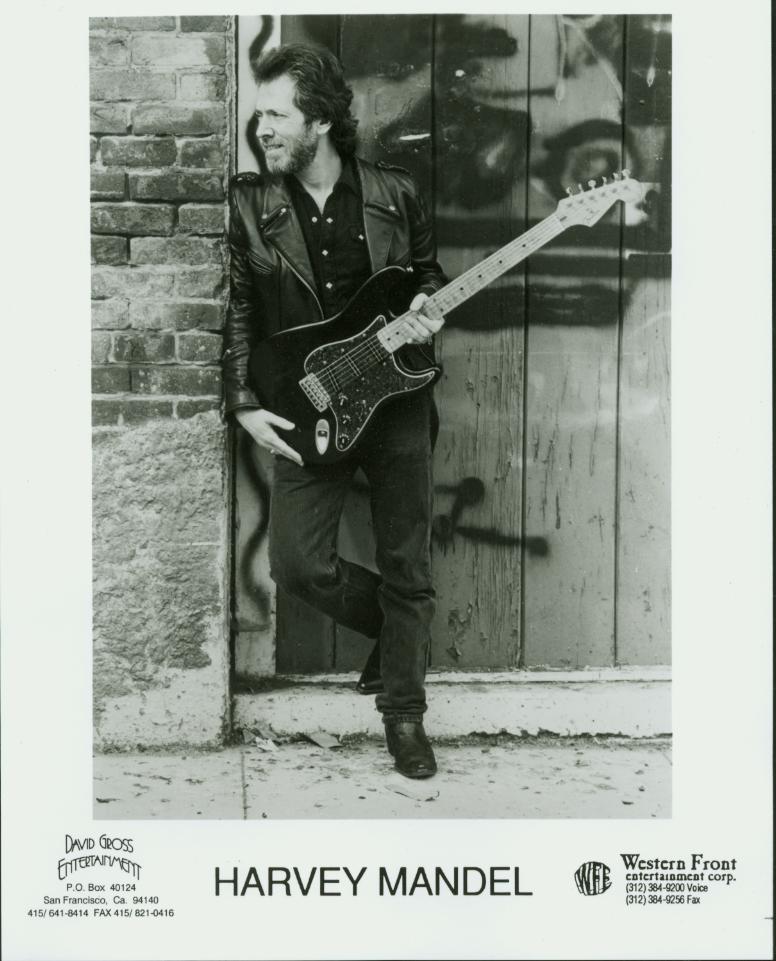
Michael Frank: I think he’s heard that explained as the blues is meant to have some space, not just so many notes jammed together.
Harvey Mandel: Yeah, you have to have some space to have proper feeling. A lot of the modern blues guitarists play a thousand notes, and you can’t hear one lick. All you hear is a bunch of fast technique, a million notes flying by. And then you hear a guy like Albert King or Buddy Guy where they play one or two licks and it’s saying something. That means a lot more than how many notes you can play and how fast you can play. It has to come from inside. The feeling has to be there for it to have an impact.
Michael Frank: And when you’re in the middle of a show, do you know in the moment when you’ve played something that just really grabs you?
Harvey Mandel: That feeling comes over me all the time when I play live. When I’m playing live in front of an audience, that also inspires me to really play well. Fortunately, most of the time when I’m playing live, I feel really good, and it works.
Michael Frank: Getting that feedback from the audience really helps you to go deeper.
Harvey Mandel: I don’t know about going deeper, but to keep playing better.
Michael Frank: Do you ever look back at the end of the night or after a show and think about whether you played great?
Harvey Mandel: Well, that’s just what I did then. And every show, every time I play, 99% of the time, I’m happy with what I did. I look back, and I’m happy. Very rarely have I played a live show or done something where I didn’t like what was happening. Usually, that was because of an equipment malfunction. But if everything is working and I’m feeling good, I never have a problem.
“The right attitude is to give it your all and know that you’re never going to be perfect.”
Michael Frank: You’re not the type of person who’s constantly analyzing. I’ve met some musicians who seem to be never really satisfied.
Harvey Mandel: I’m never 100% satisfied. That’s part of being a good musician. Once you think that you’ve got it down 100%, that’s not the right attitude. The right attitude is to give it your all and know that you’re never going to be perfect, but get as close to being perfect as you can. Be happy with that. That’s how I am.
Michael Frank: What’s it like for you working with a producer when you know you have a really clear idea of what you’re going for?
Harvey Mandel: Every major record I did had a producer. If the producer is good, he’ll help guide or make good suggestions, like what to play or what not to play. A good producer can give you good suggestions to help you go along the right path.
Michael Frank: I’ve heard that some producers have their own agenda, which may not match the artist’s.
Harvey Mandel: They’re not the right producer if they’re not in line with the artist they’re producing.
And I will say, Steve Hausheer who produced ‘Snake Walk’ has a good ear. So if I’m playing and I do something really good, he knows it. If I need to change or go in a slightly different direction, he can give me a suggestion. I’ll go back and do it again and perfect it. He’s honest and knows when you’re on the money or whether you need to slightly change. That’s a sign of a good producer.
Michael Frank: Have you produced any other musicians?
Harvey Mandel: Yes, I have a few. Back a while, probably the most noticeable one was Freddie Roulette.
Michael Frank: He played a kind of steel guitar. I met Freddie a few times.
Harvey Mandel: I knew him from 55 years ago up to the time he died.
Michael Frank: Is there anything about your work with Freddie that had any effect on your approach to music?
Harvey Mandel: Like I said, every guitar player had an influence on me.
Michael Frank: Is there anything you would like people to know that you haven’t been asked about by us or by anybody else?
Harvey Mandel: Nothing, I think, other than hopefully a lot of people will hear this new record, which I’m proud of. It’s a very good record. I played some great guitar stuff on it, so hopefully the public will hear it and get to hear Harvey Mandel again, which they haven’t heard from me for a while. So this is a good record to come back out with.
Michael Frank: Is there anything about the way you play or approach your music that is different now from your earlier years?
Harvey Mandel: Well, my playing is more advanced now. I keep getting better on certain levels. About 12 or 13 years ago, I stopped playing with a pick, where I used to play a lot faster and a slightly different style, like up-and-down picking on a guitar. Then one day, I was on tour with Canned Heat, and I decided I was going to try playing with my fingers. From that night on, I never went back to the pick. There are certain things I can’t play as fast or exactly the same way I did with the pick, but the sound, the feeling, and the timing with my fingers is superior to all the picking stuff I did back then, even though I did some really good picking stuff on some earlier records.
Michael Frank: Do you have any advice or suggestions for younger players coming up?
Harvey Mandel: Listen to other records, learn styles on certain records and stuff just to help you learn how to play things, but create your own style. Nobody cares if you can play a famous person’s licks note for note. If you want to get known or be appreciated, you have to come up with your own style.
Michael Frank: So other people’s licks are like building blocks for your own style.
Harvey Mandel: Sure. Back when I started playing, there was no internet, so there were only records. You listened to a record, and you played it over and over and over again until the needle wore out. Nowadays, young players can go on the internet and learn about all kinds of stuff that I didn’t even know about 20 years later—music theory, different scales and modes, this and that. But because of the way I learned, I think that’s what really helped me, that as an individual, I learned how to play the way I played. My playing would be completely different if I had started out as a young person on the internet. I think it’s better now that I started out back in the old days, just listening to records. Then later on, if I needed to look something up, I could go on the internet to learn about a musical thing listed there.
Michael Frank: Do you still sometimes listen to stuff that you can find on a record or online, maybe to learn something new?
Harvey Mandel: Well, not as much as I did in the old days, but occasionally, I’ll hear something. But nowadays, there aren’t that many guitar players that really stand out to me as far as wanting to learn something. You can go on the internet and see a hundred different guys who are really good. There’ll be a certain one or two that really stand out with a certain style. So, it’s different nowadays because, like I say, now it’s all the internet and YouTube. You can see videos of guys and different things. It’s a whole different world out there.
Michael Frank: You can actually watch the way someone’s playing instead of just hearing it and trying to figure it out without seeing how they did it.
Harvey Mandel: Hearing is still the most important part because you can watch somebody playing, and it’s not always going to show you how to do it. You have to hear it and be able to figure it out.
Michael Frank: Develop your ear.
Harvey Mandel: That’s the most important thing. I have a good ear. I can hear when something is happening, and I can hear stuff and figure it out within the framework of the style that I play, which is blues and rock. I’m not really a jazz player, but I can hear certain jazz stuff, and I can appreciate it and understand what’s going on, even though I don’t really play like a jazz player. I’ve definitely been influenced by some of the jazz theory, which I occasionally throw into my playing.
Michael Frank: Is there anybody you would like to play with that you haven’t?
Harvey Mandel: Maybe the only one I could think of would be Tommy Emmanuel. He’s such a great all-around player. It would be fun to play with him.
Michael Frank: I know a lot of people in the record business and agents have tried to categorize music. People search for music by style now. For people who don’t know anything about you, could you help them by describing your style?
Harvey Mandel: Like I said before, my style is primarily blues and rock with a little touch of jazz here and there. I’m mostly a blues and rock player.
Michael Frank: There are all these different sub-genres now. Would it be possible you might add to that, like psychedelic rock or blues rock?
Harvey Mandel: Well, I’ve done all of it. I’ve done the psychedelic rock, the blues. I’ve done the jazz fusion, the rock fusion. If you listen to all the Harvey Mandel records, there are no two alike. Every single one of them, I sound different on, depending on what was going on at that time, what equipment I was using, what people I was playing with, what particular songs. When you listen to the new record, ‘Snake Walk’, the truth is, I’m not even sure what category you would exactly call it because if you listen to a lot of the songs, they’re not just blues; they’re not rock. They’re somewhere in between.
Michael Frank: They don’t fit neatly into any little category.
Harvey Mandel: Exactly. They don’t fit into any precise category. The category is Harvey Mandel; that’s the category.
Michael Frank: On the show, you’re going to do a show at Biscuits and Blues later in May. What can people expect coming to see you at that show?
Harvey Mandel: I play there all the time, so a lot of my fans will come. Every time I play, it’s a little bit different, but the audience always seems to really appreciate my playing and the stuff that I do. I try to do a nice variety of the best Harvey Mandel songs that I can so that I please everybody.
Michael Frank: Do you think it might be possible you’ll do some of these new tracks?
Harvey Mandel: It’s hard to be able to do the new tracks yet without the record and without rehearsing. The only song that I know for sure of, one of the ones that’s on the record, is “Freak of Dawn.” We do that one live. A lot of the other ones would require some heavy rehearsing, especially like the songs that came from Steve. It’s different when I write a song completely and do all the instruments—I could teach a band that. If it’s coming from somewhere else, it makes it way more difficult. So without them listening to the record and rehearsing it over and over, that’s the only way I could get it done.
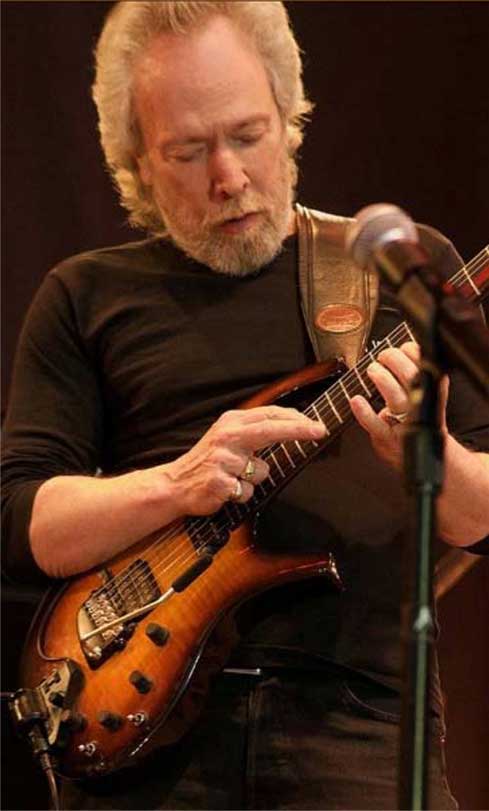
Michael Frank: Are you writing new material?
Harvey Mandel: I only come up with new stuff when I have a reason to. Like if I’m working on a project or we said, “Okay, we’re going to start a new record,” and “we’re going to do this, we’re going to do that,” then I would start coming up with something. Right now, I put all my energy into ‘Snake Walk’. Now we’re finished with that, and I’m waiting to see what happens with it before we go on to the next thing.
Michael Frank: There’s a lot of energy in ‘Snake Walk’, for sure. Well, we appreciate you doing the interview.
Harvey Mandel: Alright, likewise.
Harvey Mandel Website / Facebook
Earwig Website / Facebook / Instagram / X / YouTube

